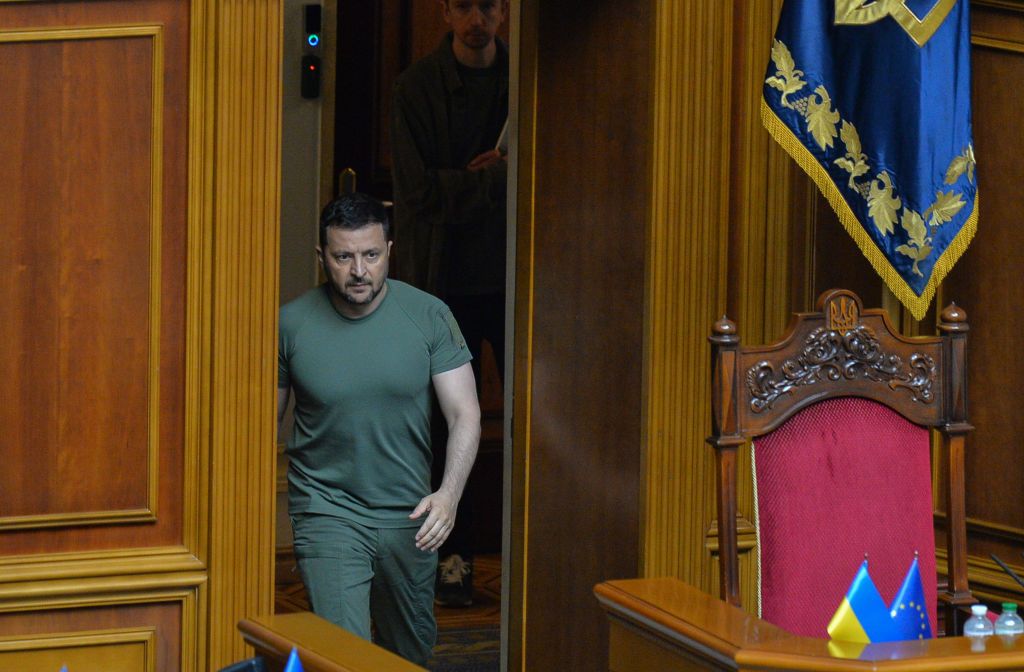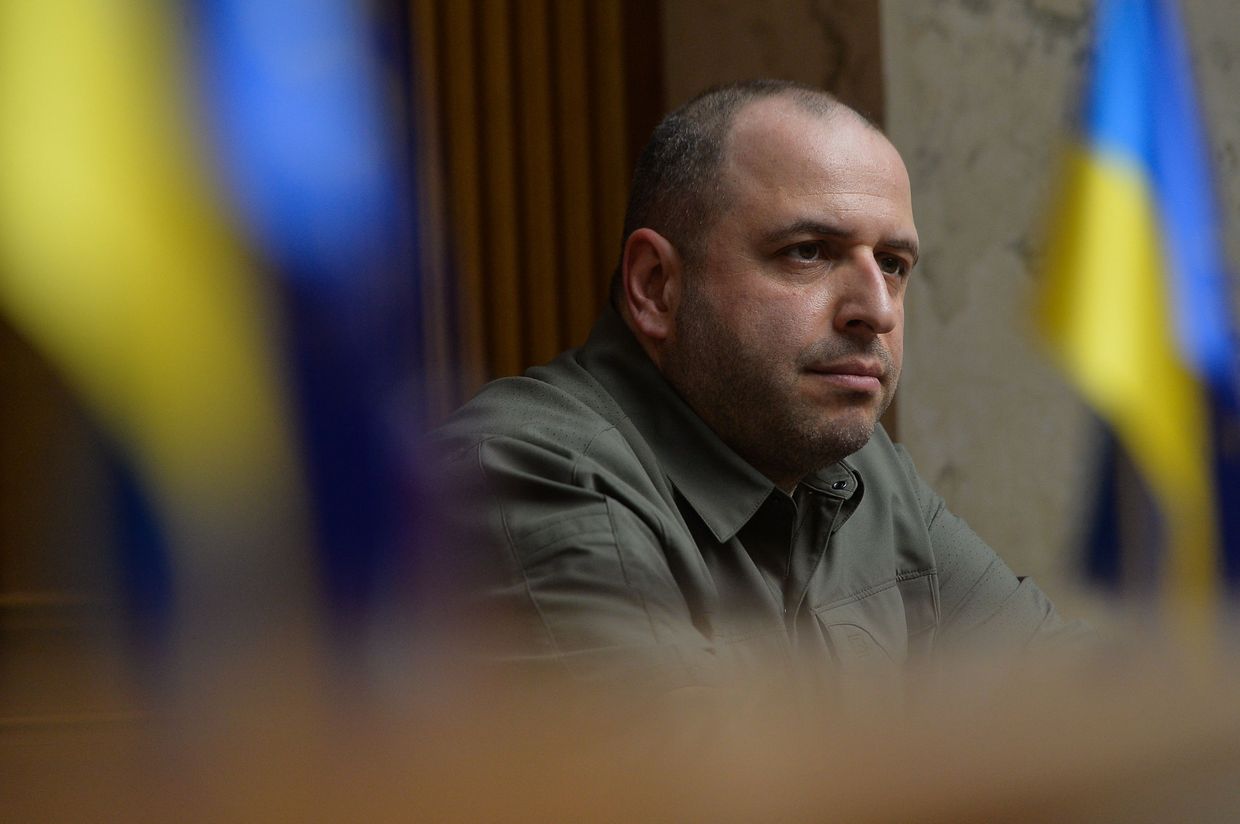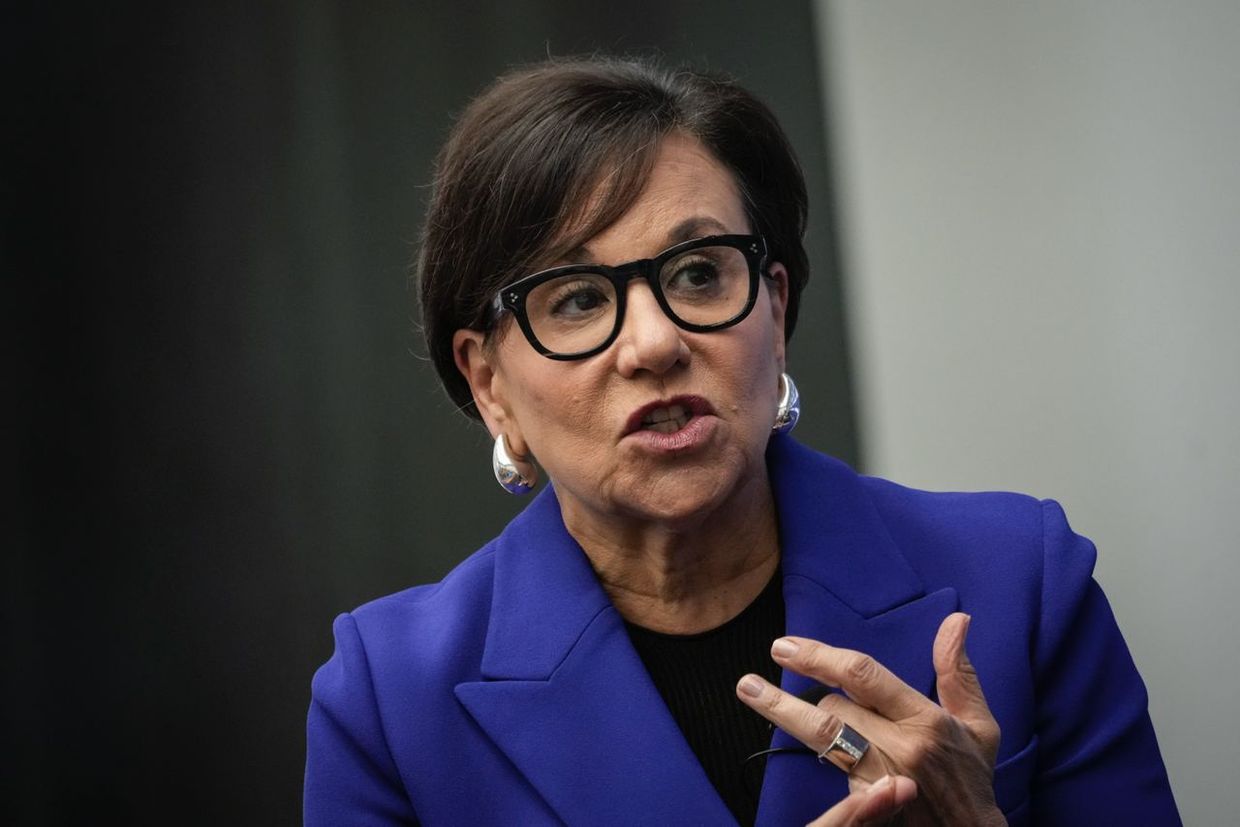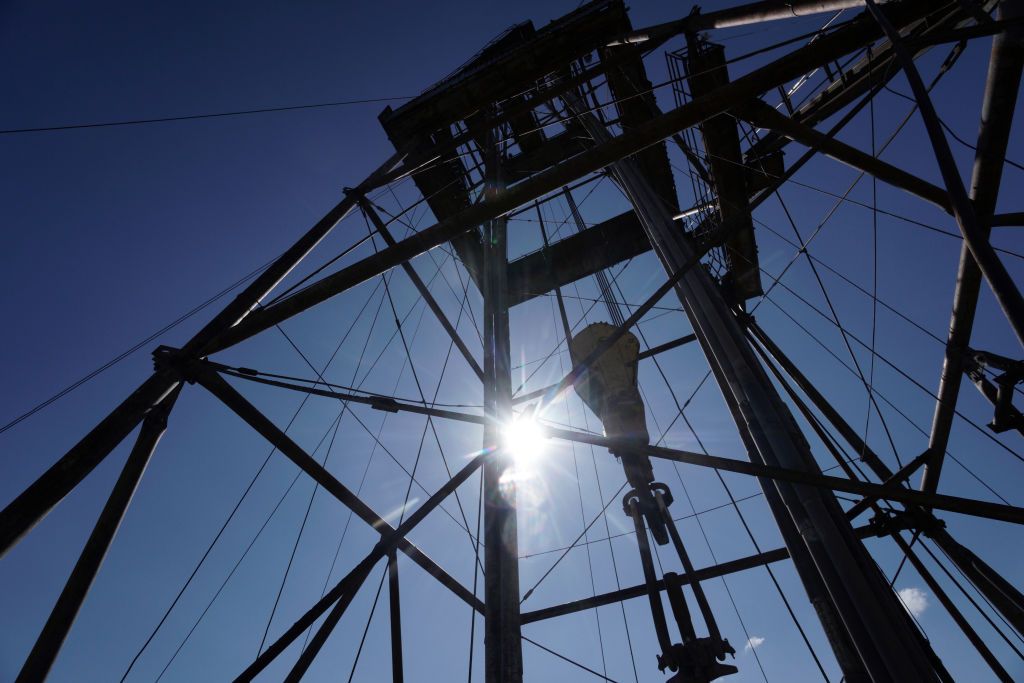Yaroslav Zhelezniak: Ukraine’s economy weekly, Sept. 18

Editor’s Note: The following is the first issue of “Ukraine’s economy weekly,” a weekly digest by Yaroslav Zhelezniak, the first deputy head of the parliamentary committee for finance, tax, and custom policy. The opinions expressed in the op-ed section are those of the authors and do not purport to reflect the views of the Kyiv Independent.
Cooperation with international financial institutions (IFIs) such as the World Bank and the International Monetary Fund has played a key role in maintaining the stability of Ukraine’s national economy.
As the co-head of the Ukrainian chapter of the Parliamentary Network on the World Bank and International Monetary Fund, I offer our partners the most important news, insider info, and personal forecasts on key issues related to Ukraine’s cooperation with IFIs.
This issue gives an idea of where Ukraine is in its agreements for the week of Sept. 11-17, 2023.
IMF benchmarks in focus
President Volodymyr Zelensky vetoed a draft law amended by Ukraine’s parliament that would have extended hiding public officials’ asset declarations for another year.
Draft law No. 9534 aimed to restore the electronic asset declarations system for public officials, suspended at the start of Russia’s full-scale war in 2022.
Zelensky vetoed the parliament’s amendments, saying: “Declarations must be open. At once. Not in a year. The registry should be opened now.”
A petition asking Zelensky to veto the law also reached over 83,000 signatures.
The parliament will adopt the draft law with the president’s amendments.
However, it isn’t yet clear whether Zelensky will veto a second controversial draft law – No. 9587 – which would absolve public officials of not having declared assets worth up to Hr 1.3 million ($35,207).
This amendment hinders Ukraine’s commitments to the International Monetary Fund (IMF), which stipulates that Ukraine resume electronic asset declarations.
The deadline to adhere to the IMF’s requirement was in July.
The parliament will consider a draft law this week on the financial monitoring of politically exposed persons (PEPs).
Draft law No. 9269 deems public servants PEPs, requiring “special financial control” over their bank transactions. The draft law is aimed at boosting transparency and targeting money laundering attempts by public officials.
Last week, Zelensky’s Servant of the People political party called to postpone the draft law’s second reading.
The draft law is included in the parliament’s agenda for this week’s meetings, although it will likely be postponed again given lawmakers’ lack of support for the first reading.
The deadline to adopt the draft law, which is another benchmark of the Memorandum with the IMF, is the end of September.
The Cabinet Ministry submitted a draft law to parliament on strengthening the institutional and operational autonomy of the Specialized Anti-Corruption Prosecutor’s Office (SAPO).
The draft law is aimed at improving the selection procedure for SAPO’s leadership, protecting against improper interference, further transforming it into a separate prosecutorial body, and ensuring mechanisms for discipline and accountability as prescribed by the IMF’s structural benchmark.
The deadline for this step is set for the end of December.
A group of lawmakers, including Anticorruption Committee Chair Anastasiia Radina and Finance, Taxation, and Customs Policy Committee first deputy Yaroslav Zhelezniak will submit an alternative draft law with more necessary provisions to enhance SAPO’s institutional independence.
The proposal will call for crucial provisions, including that SAPO’s legal entity status will not be eliminated during the review process.
The draft law will be part of a legislative package to strengthen Ukraine’s anti-corruption infrastructure.
Two other draft laws part of the legislative package suggest canceling the statute of limitations for crimes of corruption and increasing the number of employees affiliated with the National Anti-Corruption Bureau of Ukraine.
Lawmakers will submit the legislation package to the parliament this week.
The Cabinet Ministry submitted draft laws on expanding the State Budget for 2023 by Hr 317 billion ($8.6 billion).
This will require an increase in internal borrowing by Hr 184 billion ($5 billion) and external loans by Hr 107 billion ($2.9 billion).
While the government is citing increases in military expenditures, the draft laws include an increase in non-priority budgets. For example, they include a 62% increase in the Economic Security Bureau of Ukraine’s (ESBU) current budget.
The issue is that the ESBU requires additional funding not because it’s underfunded, but due to its own irresponsible financial management. The 2023 State Budget provided Hr 503.5 million ($13.6 million) to cover the ESBU’s operation – this means it could have spent Hr 41.9 million ($1.1 million) per month on average.
Since May 2023, with another change of management, the ESBU has sharply increased its spending. This means it only has 20.6% of its planned budget left to cover its expenses for the last four months of the year.
There have also been instances where ESBU and NABU investigations have overlapped, leading to significant delays in NABU’s work. One example of this has been overlapping investigations into Ukrainian oligarch Ihor Kolomoisky, which both NABU and ESBU have undertaken.
According to data from January to August of this year, the ESBU has yet to register any criminal proceedings under the eight articles of the Criminal Code for which it is responsible.
The Cabinet Ministry submitted a draft law on the State Budget for 2024.
The Finance Ministry reported that revenues of the general fund of the State Budget, excluding official transfers and grants, amounted to Hr 1.56 trillion ($42.2 billion), while the general fund’s expenditures amounted to Hr 3.11 trillion ($84.2 billion).
The State Budget financing forecast reportedly envisages a reduction in the budget’s deficit from 27% of GDP in 2023 to 20.4% in 2024.
Public debt repayment is planned to amount to Hr 606.5 billion ($16.4 billion), including Hr 421.6 billion ($11.4 billion) of domestic debt and Hr 184.9 billion ($5 billion) of external debt.
The State Budget for 2024 was designed according to the macroeconomic forecast of 5% GDP growth, Hr 7.8 trillion ($211.9 billion) in nominal GDP, and 13.8% annual inflation.
The draft law on the State Budget for 2024 provides Hr 1.69 trillion ($45.8 billion), 21.6% of GDP) for defense and security.
Four ministries received the largest increases in their funding – the Economy Ministry (+628%), the Strategic Industries Ministry (+618%), the Digital Transformation Ministry (+350%), and the Reintegration of Temporarily Occupied Territories Ministry (+118%).
However, the ESBU also appeared among the top five with the biggest budget increase, with a proposed increase in funding of 249% for next year.
This raises concerns over Kyiv’s commitment to credibility and sustainability regarding the State Budget.
Around 50% of Ukrainian customs scanners and weighing systems for cargo control are non-functional.
The State Customs Service released the information at the request of the parliament’s Temporary Investigative Commission.
For example, customs facilities in Odesa and Zakarpattia oblasts have just four such pieces of cargo equipment each.
There were also several recorded cases in which regional checkpoints borrowed scanners and weighing systems from another oblast and returned them broken.
The National Bank of Ukraine (NBU) cut the key interest rate from 22% to 20% to support economic recovery.
According to the NBU’s statement, the “further pullback in inflation and the NBU’s ability to ensure FX market sustainability are making it possible to continue the cycle of key policy rate cuts while maintaining the sufficient attractiveness of hryvnia savings.”
This was the second cut since the start of the full-scale war, when the NBU decreased it from 25% to 22% in July.
“Such a step will support the economic recovery without posing threats to macroeconomic and financial stability,” the NBU’s statement said.
The Cabinet Ministry transferred control of the Glusco gas station chain from Naftogaz, Ukraine’s state-owned oil and gas giant, to Ukrnafta, one of its subsidiaries.
In August, Ukraine’s Agency for Investigation and Management of Assets (ARMA) seized control over Glusco from Naftogaz Oil Trading LLC, citing unreliable revenue information.
Management of Glusco will now be transferred to Ukrnafta.
According to Naftogaz’s CEO Oleksii Chernyshov, the Cabinet Ministry has requested that Naftogaz Oil Trading be reimbursed for the money is spent relaunching the seized stations.
Ukrainska Pravda suggested that the transfer was the result of competition between Chernyshov and Rostyslav Shurma, the deputy head of the Presidential Office.















